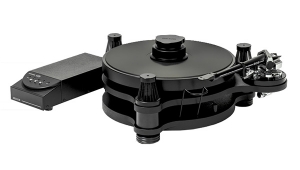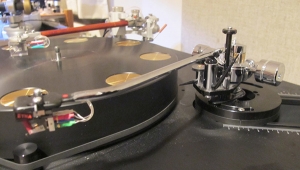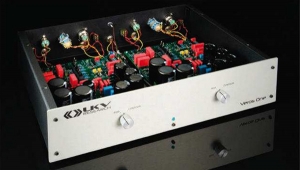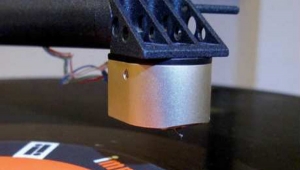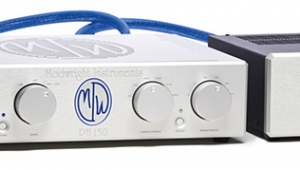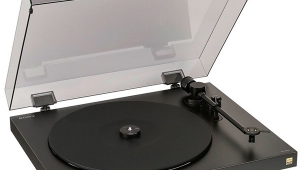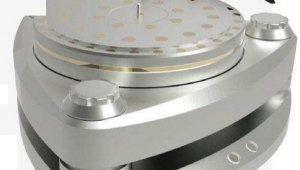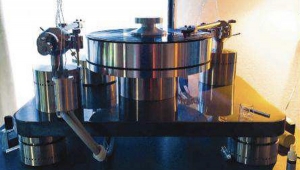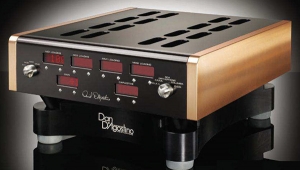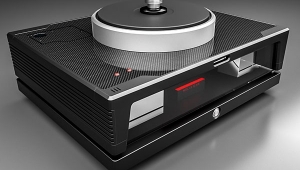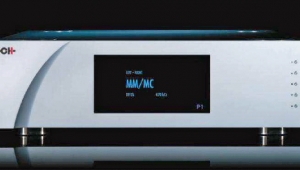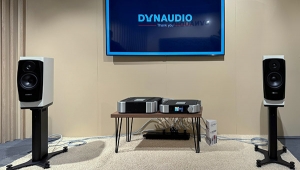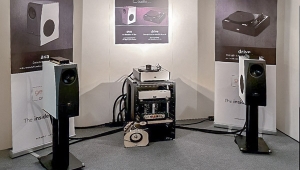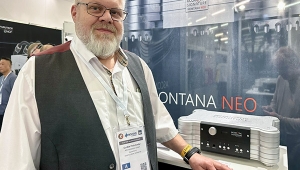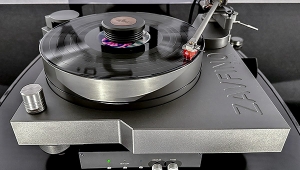| Columns Retired Columns & Blogs |
Analog Corner #261: Brahms Symphonies Direct to Disc from the Berlin Philharmonic Page 2
Fremer: Who first proposed the idea of recording direct to disc for vinyl release?
Footnote 1: In fact, Maillard had advocated recording direct-to-disk in 2011, when he posted this YouTube video.
Maninger: The idea came, in a way . . . I mean, you have these [cutting lathes] that exist—which I didn't know they still are functional, some of them. Then I heard from our recording studios that do all of the production for Digital Concert Hall that the Emil Berliner Studios were like 80 meters from the Berliner Philharmonie.
Then we discovered . . . you know, you drink a glass of wine and you discuss certain scenarios: Has [direct-to-disc recording] ever been done for orchestras? Has it ever been done for live performances? And at a certain point, this idea came up all the time—and Rainer Maillard, the head technician in charge of the Emil Berliner Studios, loved the idea to do it with an orchestra (footnote 1). But normally, it's completely impossible to have such a big project, and normally these machines shouldn't be moved from the studio. They are really fragile.
But then we had this cycle of Brahms symphonies [scheduled for live performances], and this could be a project where you can record a complete cycle of symphonies, because the movements . . . can [each fit on one side of a lacquer]. If you do a Mahler symphony, you have to stop in the middle, and this is not possible in a live performance. There are very, very few pieces that can be done like this. So we decided very fast that we should do [it].
Fremer: I think the music is also accessible to some people who may not be into classical music—especially the Fourth Symphony. Well, that's my favorite.
Maninger: The music is, of course, fantastic, but had it been any other music that we would have played twice [in concert] as a cycle, like Stravinsky ballets or whatever . . . I mean, [the fact that] that we were doing the cycle twice [live] gave us a second chance of a concert, because having a complete cycle and having just one chance would have been too [risky], even for our orchestra.
Fremer: Was the audience told in advance that you were going to be recording this and they should try not to cough?
Maninger: No.
Fremer: Because you didn't want them to get nervous?
Maninger: Yes.
Fremer: They are remarkably quiet—there are so few coughs. When I sit in New York, in David Geffen Hall, it sounds like a tuberculosis ward!
Maninger: Absolutely. It was just lucky! The audience in Berlin is normally not that quiet. This was really special. Also, the concert hall is probably not so sensitive for this cutting system.
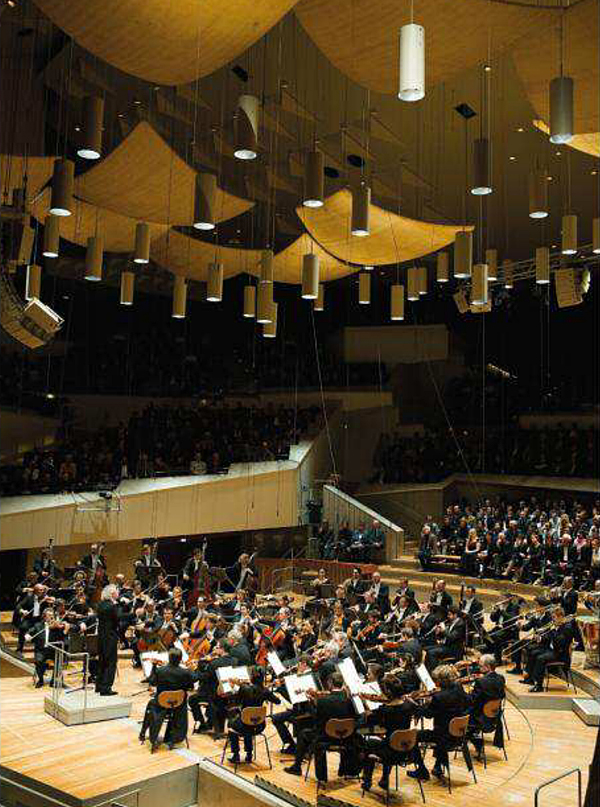
Fremer: Because the Philharmonie is not a "shoebox" design.
Maninger: Yes, because it's not a "shoebox" design, and because I spent two days at the opening of the Elbphilharmonie Laeiszhalle, [a new, 2100-seat concert hall] in Hamburg, and it's really, really loud, and you hear everything, what everyone is doing in the hall—the musicians and the audience. There, you wouldn't have had any chance.
Fremer: I remember reading something that Simon Rattle said about the Royal Festival Hall, in London: that it was so communicative of everything, with such a stark, dry acoustic, that it made performers who play in it "lose the will to live." So the Philharmonie was the right hall for this, and the lengths of the movements were right. Did they record the concerts digitally as well, as a backup?
Maninger: Yes, of course we did. It was just the normal Digital Concert Hall production. We did it live streaming, as we do of all of our concerts.
Fremer: Well, I'm sure the boxed set sounds better than an MP3 live stream over the Internet. (See my review at Analog Planet.)
Maninger: Of course!
Fremer: Did members of the orchestra listen to the records? Were they happy with the performances?
Maninger: Of course not! [both laugh] There are always people complaining, and people who don't like the balance. I mean, we had serious discussions with the wind players, who thought they are not as present as they should be—in a grand sense, I mean: not about personal mistakes, but about balance, about the first violins appearing to be a little too present. But they are very near to the microphones—they are just more present than in a normal recording. In the first round [of recordings], we had, like, the first oboe, the first flute, the soloists of the orchestra, the concertmaster, solo cello—we wanted their opinions that it could be a possible project. And we had [such] different views on the project, and some that really loved it and liked it, and said that, whatever happens, we should do it, it's historical.
Fremer: Yes, exactly!
Maninger: And we had people who said, "You shouldn't. You shouldn't bring this out. The orchestra doesn't sound like that in the Berliner Philharmonie. It's not a good [image] for the orchestra." And then, in the end, after many discussions, we [had] an orchestra meeting and played a half an hour of excerpts where we had the balance problems and the good things. Then the [outside] people who supported the project left, and in the orchestra meeting, a big, big, big majority voted for the project—and it was very democratic!
Fremer: The box is beautiful, and everything about it is first-class. Do you know where the records were pressed? Was it at Optimal?
Maninger: I'm sorry, no. I'm managing director! I don't know where they were pressed, to be honest.
Fremer: Are there any orchestra members who have turntables and listened to the set? Or do they not want to hear their own performances?
Maninger: [laughs] Well, there are many who do listen to their own performances—and this one especially—and there are some who have turntables, and some hi-fi listening specialists who also have turntables and whatever kind of amplifiers you can imagine, and listened, and they all loved it. And what we hear now from the audience that's buying these Brahms symphonies, it's really exciting. They really like it.
Fremer: Do you think this might happen again?
Maninger: If there might be any projects which would be offered for me to do, I would directly do it again! But over the next three years, there's not a single project where this would make sense, to be honest with you.
Fremer: Have sales of the set so far met expectations?
Maninger: We have just the 1833 [copies] and they will be sold out, there's no question about it. The only question is when—the beginning of the year, the middle of the year, or next year? It's unique, and the demand is big enough.
Footnote 1: In fact, Maillard had advocated recording direct-to-disk in 2011, when he posted this YouTube video.
- Log in or register to post comments
